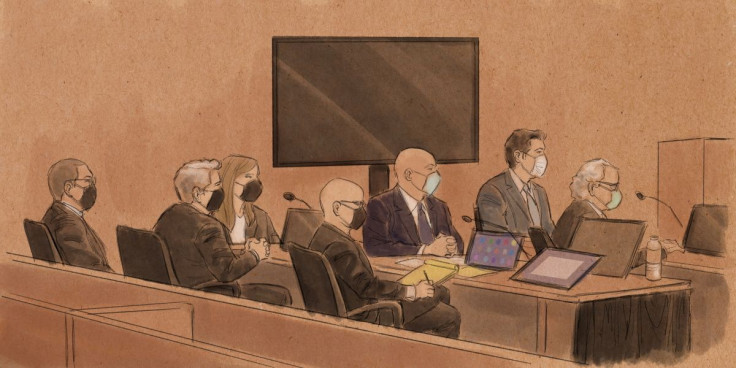Minneapolis Ex-police Officer Trusted Colleague's Use Of Knee In Deadly Floyd Arrest

Tou Thao, one of three former Minneapolis police officers on trial for violating George Floyd's civil rights, testified on Wednesday that he trusted his ex-colleague Derek Chauvin knew what he was doing by kneeling on the handcuffed Black man's neck for more than nine minutes in a deadly 2020 arrest.
In his second day testifying in his own defense, Thao repeatedly said he assumed Floyd must be fine and not in need of medical intervention during the roadside arrest on May 25, 2020, because Chauvin was an experienced police officer.
Chauvin, who is white, was convicted of murdering Floyd in a separate state trial last year, a death captured on widely seen cellphone video that also shows Thao stood nearby keeping increasingly alarmed bystanders up on the sidewalk.
A federal prosecutor, LeeAnn Bell, asked Thao in cross-examination why he did not agree to shouted demands from alarmed bystanders, including an off-duty city firefighter, for officers to get off Floyd after he was unconscious and to check his pulse.
"I think I would trust a 19-year veteran to figure it out," Thao said.
He repeatedly said he could not check whether Floyd was unconscious because he had no physical contact with him. He said he did not know at the time if the bystanders were correct that Floyd had passed out and saw no need to ask his colleagues whether Floyd still had a pulse.
"I don't take orders from them," he said of bystanders.
Thao, 36, is accused with J. Alexander Kueng and Thomas Lane of willfully violating Floyd's right to receive medical care as he lay dying, unable to properly breathe face down beneath Chauvin's knee. Thao and Keung face a second count of depriving Floyd of his rights in their roles as government officials by failing to stop Chauvin's use of excessive force.
He saw his role that day as crowd control, but conceded he had a duty to ensure anyone in police custody who needed medical aid received it. From his viewpoint, Thao said Chauvin's use of a knee on Floyd's neck did not concern him.
In later questioning by his defense lawyer Robert Paule, Thao said he had confirmed with colleagues that an ambulance was on its way and they were waiting for emergency medical services (EMS) to provide care the officers could not provide. He said he feared Floyd could be having a dangerous, even violent, reaction to a drug overdose.
"To save his life we needed to hold him down for medical personnel," Thao said.
He then agreed with Bell that police are trained that it is dangerous to leave someone prone and instead should roll a person on their side once they have been restrained on the ground. He acknowledged that police are taught how to revive someone whose heart has stopped beating.
"Those are medical things you can do to help someone's medical situation without EMS being there right?" Bell asked.
"Yes," Thao said.
© Copyright Thomson Reuters {{Year}}. All rights reserved.





















